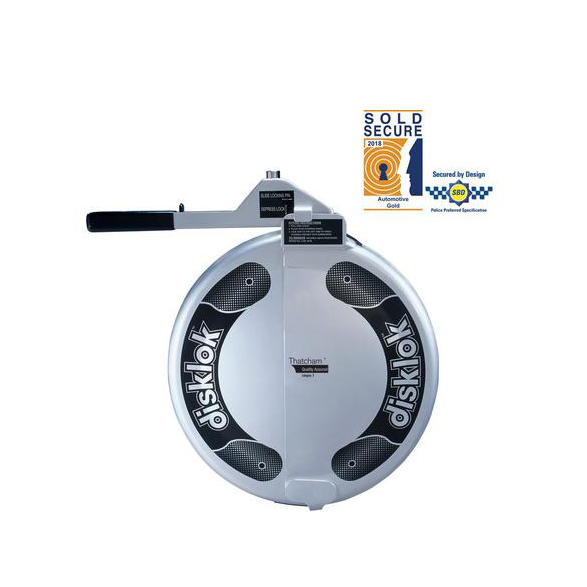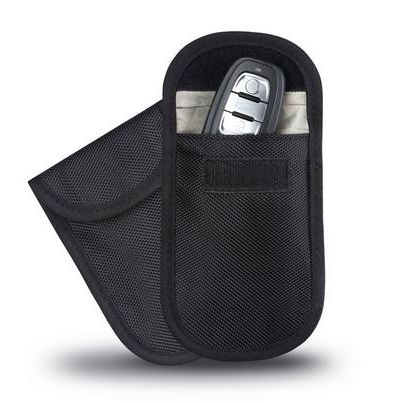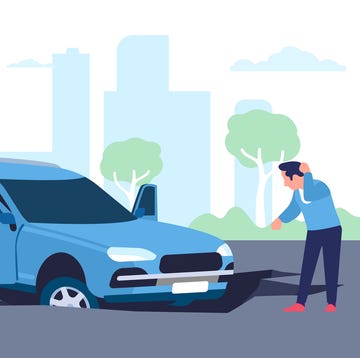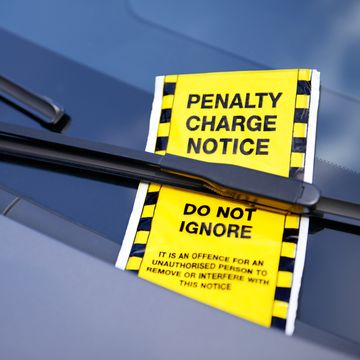Driving is a useful, and for many, essential skill. But tackling complex road systems, careless and aggressive drivers and challenging situations such as driving at night or in bad weather can leave many of us feeling daunted at the prospect of getting behind the wheel.
Here are some signs you may have driving anxiety - and expert tips on how to overcome it.
Have you avoided learning to drive at all?
"Many women put off learning to drive throughout their twenties - often for very valid reasons, such as lack of money or city living," says motoring journalist Maria McCarthy, author of 50 Ways to Overcome Driving Test Nerves. "Then at some point in their thirties, forties or beyond they want to learn for family or career reasons, but feel daunted by the prospect. They might have had discouraging experiences when learning as teenagers which has put them off, or feel that 'it's too late now' to learn."
Statistics show that teenagers learn to drive and pass their test with greater ease - often because they are more used to learning new skills. Maria McCarthy says, "My advice is to find an instructor you feel comfortable with - maybe someone older, or with experience of teaching learners who aren't super-confident 17 year-olds. Learning on an automatic car can be a game-changer and make the process much easier as you don't have to worry about the gears or clutch."
Are you afraid to venture off the beaten track?
Some women are fine driving on their regular routes, such as to work or the supermarket, but feel daunted by unfamiliar journeys. If you're a city girl you might be comfortable with congested roads and complex junctions but find motorways or rural roads challenging. And if you're more used to country driving you could feel intimidated when you find yourself in a busy city. "It's easy to get stuck in a driving comfort zone, especially if you get into the habit of letting your partner take care of longer journeys," says Rebecca Ashton, Head of Policy and Research at road safety charity IAM RoadSmart. "But if you don't practice you'll lose confidence so get in the habit of sharing the driving."
Investing in a reliable sat-nav can make a big difference on unfamiliar roads.
Have you lost confidence in your driving skills?
There are lots of reasons why you might be reluctant to get behind the wheel. Maybe you've been involved in an accident, had a period without driving or high stress levels in other areas of your life have affected your driving confidence.
Motoring journalist Maria McCarthy says, "Refresher training really help get you back on the right track, so don't let feelings of embarrassment put you off. IAM RoadSmart runs very helpful assessments and courses, or you could contact a local driving instructor and explain you're already a licensed driver who would like to improve your skills. You can focus on the areas that you want to improve, whether that's parking or or navigating complex junctions."
Do you dread motorways?
"Until recently learner drivers weren't allowed on the motorway, so it's not surprising if you feel intimidated by them as you probably never received instruction on how to cope," says Maria McCarthy. "Taking additional training with an instructor will help. They will be able to guide you into suitable spaces and give you confidence to slot in and trust your judgement when you're alone. Then choose a quiet time such as a Sunday morning to practice joining the motorway, driving for a couple of junctions then coming off again."
Is night driving a nightmare for you?
Being dazzled by the headlights of oncoming drivers is one of the trickiest aspects of night driving. To make matters worse, many of us feel drawn to them like a moth to a flame.
"Don't look at the headlights," advises Rebecca Ashton. "Keep your eye on the left hand kerb and if the dazzling is severe pull over and give your eyes a chance to recover. Making sure your windscreen is clean inside and out will give you the best visibility possible."
Are you worried about road rage?
Road rage, such as having other drivers cut you up or beep their horn at you, can be very intimidating. However any form of retaliation can escalate the situation so it's best not to engage with them. And if you were at fault, an apologetic gesture can help smooth things over.


















